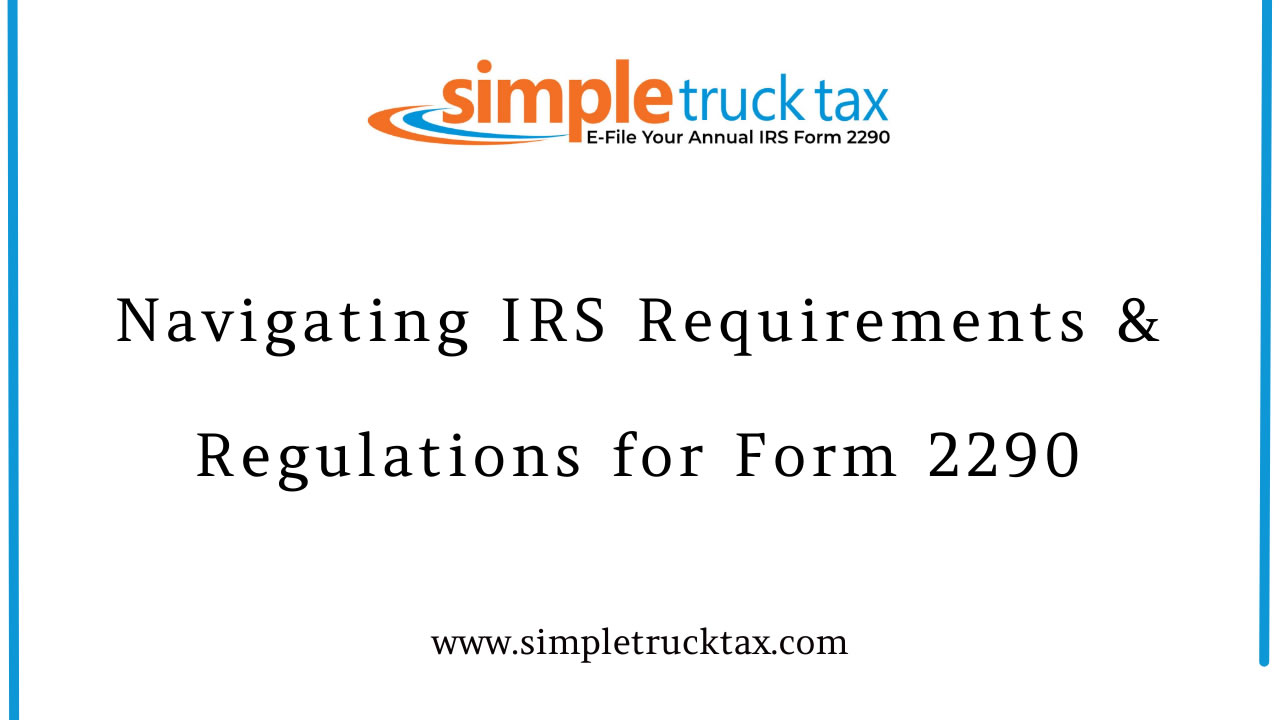
Navigating IRS Requirements & Regulations for Form 2290
Being an owner of heavy vehicles requires knowledge about the IRS requirements regarding Form 2290, which is Heavy Highway Vehicle Use Tax (HVUT). Compliance is not only an avoidance of penalties but rather a cornerstone that leads to smooth operation without a blockade from the IRS. As a dedicated e-filing service provider for Form 2290, we are on hand to demystify the rule.
Who must file?
The basic rule is that if you operate or have control over a highway motor vehicle that has a taxable gross weight of 55,000 pounds or more and that is used for highway travel, then you are liable to file that form. Whether the vehicle is registered in your name or if you are going to be paying under a lease or another form of arrangement with respect to the vehicle does not matter. It does not even matter whether you expect to drive it for less than 5,000 miles (or 7,500 for agricultural vehicles) during the tax period; you have to file as a suspended vehicle anyway.
Key Deadlines You Must Understand
The tax year for HVUT runs from July 1st through June 30th. For vehicles first used in July, the Form 2290 due date is generally August 31st. On the contrary, when the first use for a vehicle is after the month of July, the tax is prorated, and the filing deadline is the last date of the month following the month of the vehicle's first use. If these deadlines are missed, huge penalties, fines, and interests await.
E-filing Compulsions
Another very straightforward rule to note: If you have 25 or more taxable vehicles, you must e-file Form 2290 with the IRS. Although e-filing is not compulsory for fewer vehicles, using an IRS-authorized provider such as us can save you time with instant processing of your Schedule 1 receipt without the error-prone calculations manual ones often have.
Record keeping: the Backbone of Compliance
The IRS, with the HVUT program, requires you to have good preservation of records in a very precise manner. You need to keep records with the supporting information for your Form 2290 for a minimum of three years after the due date or after the date of filing, whichever is later. There must be VINs recorded, taxable gross weights recorded, mileage logs for suspended vehicles included, and proof of sale if applicable. Accurate records will really matter later for possible future audits, amendments, or refunds.
In this way, the above-mentioned IRS concepts create an entire atmosphere for HVUT filing that is accurate and timely and devoid of stress. And let that e-filing service help you stay informed about these critical rules so that you may forge ahead, focusing on the road.